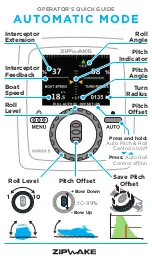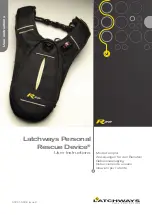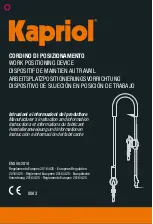
PNF
EXERCISES
The
PNF
Pulley
System
allows
the
patient
to
incorporate
PNF
stretching
into
an
exercise
or
rehabilitation
protocol.
By
using
the
handles
attached
the
direction
of
force
may
be
controlled.
The
resistance
is
controlled
by
the
number
of
Elasticords
attached.
Apply
proper
pelvic
stabilization
and
lordotic
curve
for
all
of
the
following
applications.
CROSS
CRAWL
You
can
aid
in
establishing
communication
between
the
left
and
right
side
of
the
brain
using
the
cross
crawl
drill.
1. Set
resistance
as
injury
and
condition
dictate.
2. Place
one
foot
on
kickplate.
3. Grasp
PNF
handle
with
opposite
arm.
(Adjust
PNF
rope
length
to
appropriate
extension.)
4. Press
off
kickplate
with
foot
and
pull
with
opposite
arm
towards
body.
Variation:
1. Jump
off
the
kickplate
with
the
right
foot
and
pull
down
with
the
left
arm.
2. Alternate
by
jumping
with
the
left
foot
and
pull
with
the
right
arm.
3. Keep
the
hips
square
and
the
back
flat
to
maintain
a
lordotic
curve.
Adjustments:
Use
Foot
Supports
to
support
feet
against
the
kickplate
and
Adjustable
Backrest
to
desired
height
for
patient
comfort.
Refer
to
Section
IV.
Accessories
for
further
information.
HAMSTRING
STRETCH
Page
61
of
73
Summary of Contents for Shuttle Recovery
Page 2: ...Page 2 of 73 ...
Page 4: ...Page 4 of 73 ...
Page 19: ...Step 2 Attach Ropes to Towers Page 19 of 73 ...
Page 25: ...Page 25 of 73 ...
Page 27: ...Page 27 of 73 ...
Page 29: ...Page 29 of 73 ...
Page 41: ...Page 41 of 73 ...
Page 48: ...Page 48 of 73 ...













































